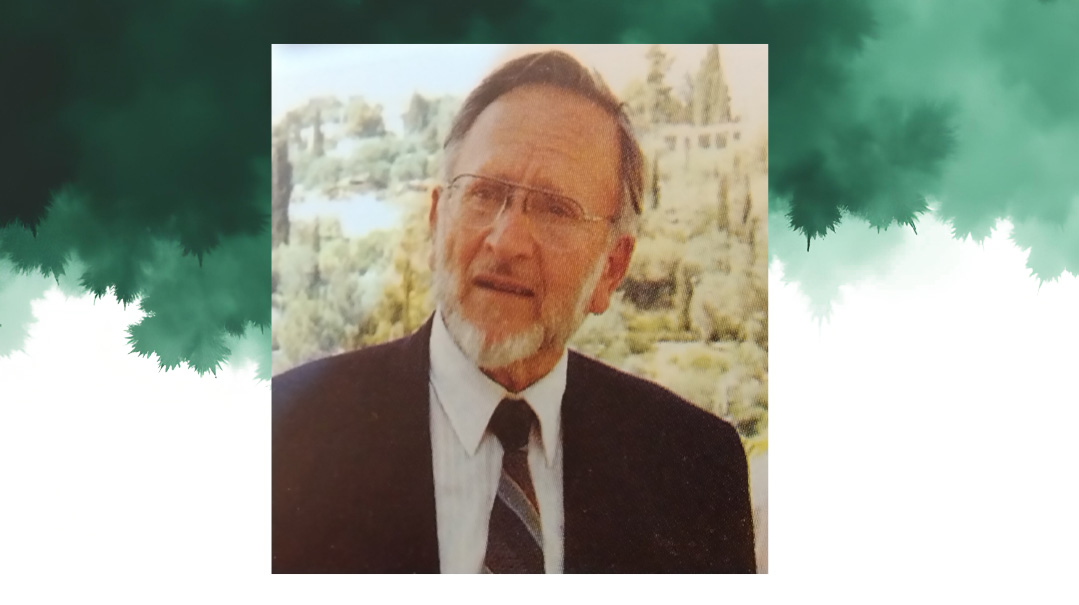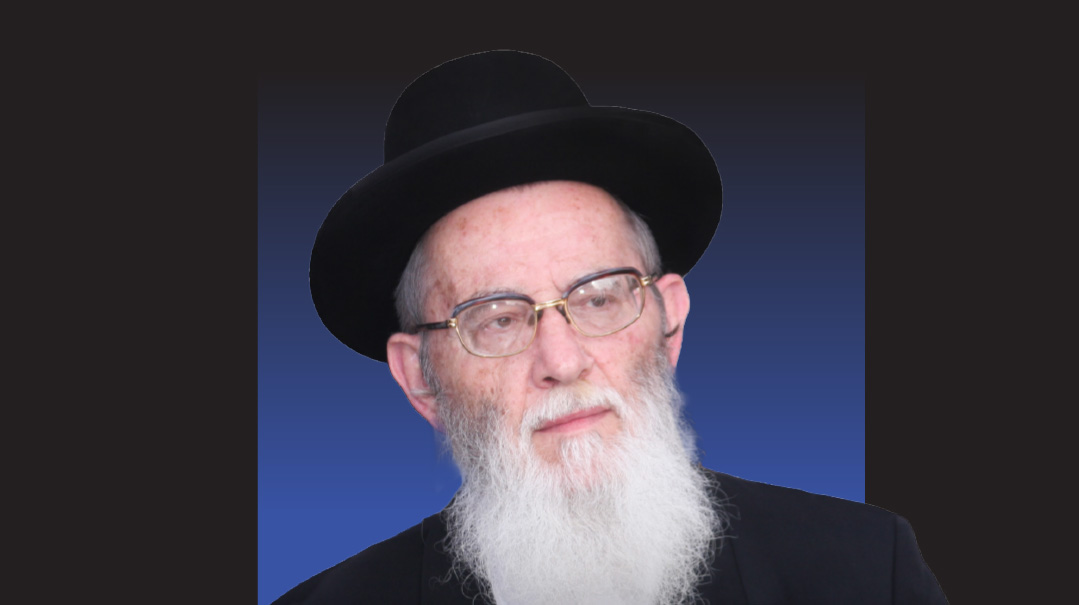A Pioneering Spirit
| December 17, 2024Remembering Rabbi Meyer Fendel a”h, founding dean of HANC

The report that Rabbi Meyer Fendel had passed away in Eretz Yisrael at the age of 98 on December 7 came as a jolt.
NOdoubt, for tens of thousands of his talmidim, the news made their minds wander back to the time they spent with him, and the impact he had on their lives. I know it did for me.
It was way back in the spring of 1976, and I was teaching English at Yeshiva High School of Queens and acting as assistant principal at Mesivta Tifereth Jerusalem in the afternoon. Marvin Hirschorn, the English chairman at YHSQ, also chaired the board of the Hebrew Academy of Nassau County (HANC). When their general studies principal, Mrs. Sally Reimer, decided to retire to Florida, Mr. Hirschorn suggested I interview for the position. By that time, HANC had already established itself as one of the elite yeshivah day schools in the country, and I approached the upcoming interview with trepidation.
The greenery of HANC’s Mitchel Field campus was stunning, and I felt more at ease after a pleasant talk with Rabbi Fendel, the founding dean. Afterward, we walked out together just as the bell rang, and the diversity of the student population swarming through the hallway immediately caught my eye. There were boys with white shirts, black pants, and velvet yarmulkes walking with boys with longish hair (this was the ’70s) and kippot sitting askew on their heads.
Intrigued, I asked, “What type of school caters to such different levels of religiosity? How does it work?”
Rabbi Fendel’s answer summed up what HANC was all about: “We’re a community school. We accept all those who want to attend a yeshivah to learn about their heritage and to see the beauty of the Torah. We’re not concerned with the way they come in. What’s important is the way they go out.
“That is one aspect of HANC’s eternal motto — ‘Chanoch lanaar al pi darko.’ Teach a child on his own level of background and understanding. This is what HANC is and hopefully will always be.”
With these wise words ringing in my head, I became a colleague of Rabbi Fendel and part of the HANC family.
A Torah Wilderness
Meyer Fendel was born in 1926 in Williamsburg to Rabbi Zalman Hillel and Chaya Raizel Fendel and grew up in a home steeped in Torah and Yiddishkeit. He learned in Yeshivah Torah Vodaath, and after high school learned for a time in the yeshivah started by Rav Dovid Leibowitz. He made a trip to Eretz Yisrael as a young man, before he was married, which imbued him with a love of the land.
In 1952, Rabbi Fendel accepted the position of Torah Umesorah’s director of school development, charged with developing new Jewish day schools throughout the US. That role made him aware of a number of communities across the country in desperate need of chinuch resources. One in particular, Nassau County on Long Island, was not far from his childhood home in Brooklyn — but it was a Torah wilderness. Almost all the synagogues there were affiliated with the Conservative and Reform movements.
Rabbi Fendel decided to take a bold step, and selected West Hempstead as the target town for the kind of school he wanted to establish, despite there being only one or two observant families residing there. A small ad soon appeared in a local West Hempstead newspaper: “Nine Men Wanted for a Minyan.” Rabbi Fendel would later use that as the title of the book he wrote about those years.
The Hebrew Academy of Nassau County opened in a building known as the Oppenheimer Collins Estate (where the present-day elementary school is located). A problem arose almost immediately when an occupant of the building refused to vacate the premises. But the problem was solved when the resident, who worked at the Brooklyn Navy Yard, was suddenly killed by a falling concrete block.
The nascent school would eventually become a four-campus complex with over 1,000 students. Rabbi Fendel served as the new school’s principal as well as the first rabbi of the Young Israel of West Hempstead.
HANC’s educational philosophy is based on the teachings of Rav Avraham Yitzchak HaKohein Kook, whom Rabbi Fendel venerated. Each child in HANC was deemed special and was to be educated accordingly. The bonds between the students and their teachers grew to be as strong as those between them and their parents and grandparents.
Rabbi Fendel adopted a “benevolent dictator” approach to make this happen. He hand-selected his administrators, his staff, and — most importantly — the heads and members of his Board of Education and Board of Directors, so that the entire school became a reflection of his sensitivity, personality, and vision of what Jewish education should be. It was a glorious era.
In 1957 Rabbi Fendel married Goldie Feldman, and together they built a warm home that extolled service for Klal Yisrael. Their children, Rabbi David Fendel, who founded the Hesder yeshivah in Sderot, and longtime Orthodox journalist Hillel Fendel, were inspired by their parents’ example.
New Opportunities
“To say that HANC changed my life is too trite a statement,” says Rabbi Dovid Orlofsky, famed rabbi, teacher, and lecturer. “How about it gave me my very life. I grew up in a home that was not shomer Shabbos. There was no reason that my family should not have quietly assimilated, just like millions of other nominally affiliated Jews of that era. That Rabbi Fendel moved into Long Island in the 1950s to start an Orthodox day school was nothing short of miraculous. Because of his vision, today my parents have over 37 grandchildren and almost as many great-grandchildren — all of them shomrei Torah u’mitzvos.”
Perhaps Rabbi Fendel’s greatest educational achievement was his establishment in 1971 of HANC’s unique New Opportunities Program (NOP), designed to enable students with little or no Torah background to join the school. Students with only rudimentary knowledge of Hebrew literacy would be placed in special morning classes teaching the basics of Chumash, Navi, halachah, and Jewish history, and in mainstream general studies classes in the afternoon. Many teens inspired by their summer’s experience with NCSY or JEP would apply for admission to NOP in late August. It brought hundreds into the world of Torah Judaism.
The stories that emanate from NOP are electrifying. There was the odyssey of Yitzchak P. After the Shah of Iran was deposed, Jewish parents in Iran began smuggling their children out of the country through Pakistan and Vienna to the US to stay with relatives in Great Neck, Long Island, which was morphing into New Tehran and Mashhad.
Yitzchak’s uncle brought him to HANC a few weeks before Pesach, asking the school to accept him. When he was asked if he knew a little Chumash, he looked bewildered.
“The Bible,” we explained.
“Oh, yes. I know the Koran,” he said.
Since he had to know at least some of the basics of Hebrew and Judaism to be able to function in a class that had already been underway for a few months, we suggested he contact a tutor we recommended to bring him up to speed. To our astonishment, when he returned after Pesach, not only did he know how to read Hebrew, but he had already mastered the basics of Chumash and Mishnah.
After graduating from HANC, he went to Yeshivas Ner Yisroel in Baltimore to learn full time. After Succos, Rabbi Fendel received a call from the mashgiach of Ner Yisroel, who shared that Yitzchak was unwilling to leave the beis medrash when they wanted to shut the lights at 2 a.m.
And then there’s the story of Wade. When the Los Angeles branch of NCSY called to ask if our school had a program that could take in an 11th-grader with no yeshivah background named Wade, I pictured a six-foot-eleven basketball player.
“Wade?” I stammered.
“Don’t worry, he’s Jewish,” the L.A. caller reassured me.
Wade flew through NOP on wings of determination, entered mainstream limudei kodesh shiurim midyear, and went on to learn in Eretz Yisrael. Upon returning to America, “Wade” started going by his Hebrew name and is today a well-known askan.
Countless more boys and girls who are today raising Torah families credit Rabbi Fendel’s visionary program with turning their lives around.
Rallying Support
The 1980s was a decade full of protests and demonstrations against the government of the Soviet Union and its treatment of the refuseniks, Jews who wished to emigrate to Israel. They were punished for their “crime” with imprisonment and torture, consigned to gulags in Siberia.
Rabbi Fendel was an active participant in the cause to free them, not sufficing with having his students attend protest rallies or write letters. Every day — rain or shine, warm or cold — Rabbi Fendel sent two cars filled with HANC students to the courthouse in Mineola, where the students and their teachers, sometimes accompanied by local rabbis, would daven Minchah and recite Tehillim under banners calling for Russia to “Let My People Go.”
This went on for years until both Yosef Mendelevitch and Natan Sharansky, two of the most longstanding refuseniks, were able to leave the Soviet Union for Eretz Yisrael. In appreciation for what the HANC students had done for him, Rabbi Mendelevitch stopped off at HANC on the way to JFK to thank Rabbi Fendel and the HANC students in person.
Rabbi Fendel didn’t just muster his students to protest against the Soviet Union; he also assembled them to show support for US troops. The school is adjacent to an army base, and as soon as it was opened, Rabbi Fendel crossed over to the base and introduced himself, telling the commander that the school would be there for them if needed.
Indeed, when the soldiers who trained there were called up for duty in Iraq during the first Gulf War, HANC students geared up for action, as well. On the day before the reserve soldiers packed out, the entire school marched to the base with signs and songs wishing them success and praying that they would all return to base safely. It was a tremendous kiddush Hashem, and the tears in the eyes of both soldiers and students were readily visible.
From a school that began with less than 20 students, HANC grew into an institution with four campuses, housing over a thousand students. The tens of thousands of alumni include many of New York’s Orthodox doctors and public health officials. His approach to chinuch would influence generations of Jewish educators. His dedication to making Torah accessible to all Jews, regardless of background, reshaped the American Jewish landscape. Rabbi Fendel had the zechus of seeing the fruits of his work before he and his wife moved to Eretz Yisrael later in life.
Yehi zichro baruch.
(Originally featured in Mishpacha, Issue 1041)
Oops! We could not locate your form.







